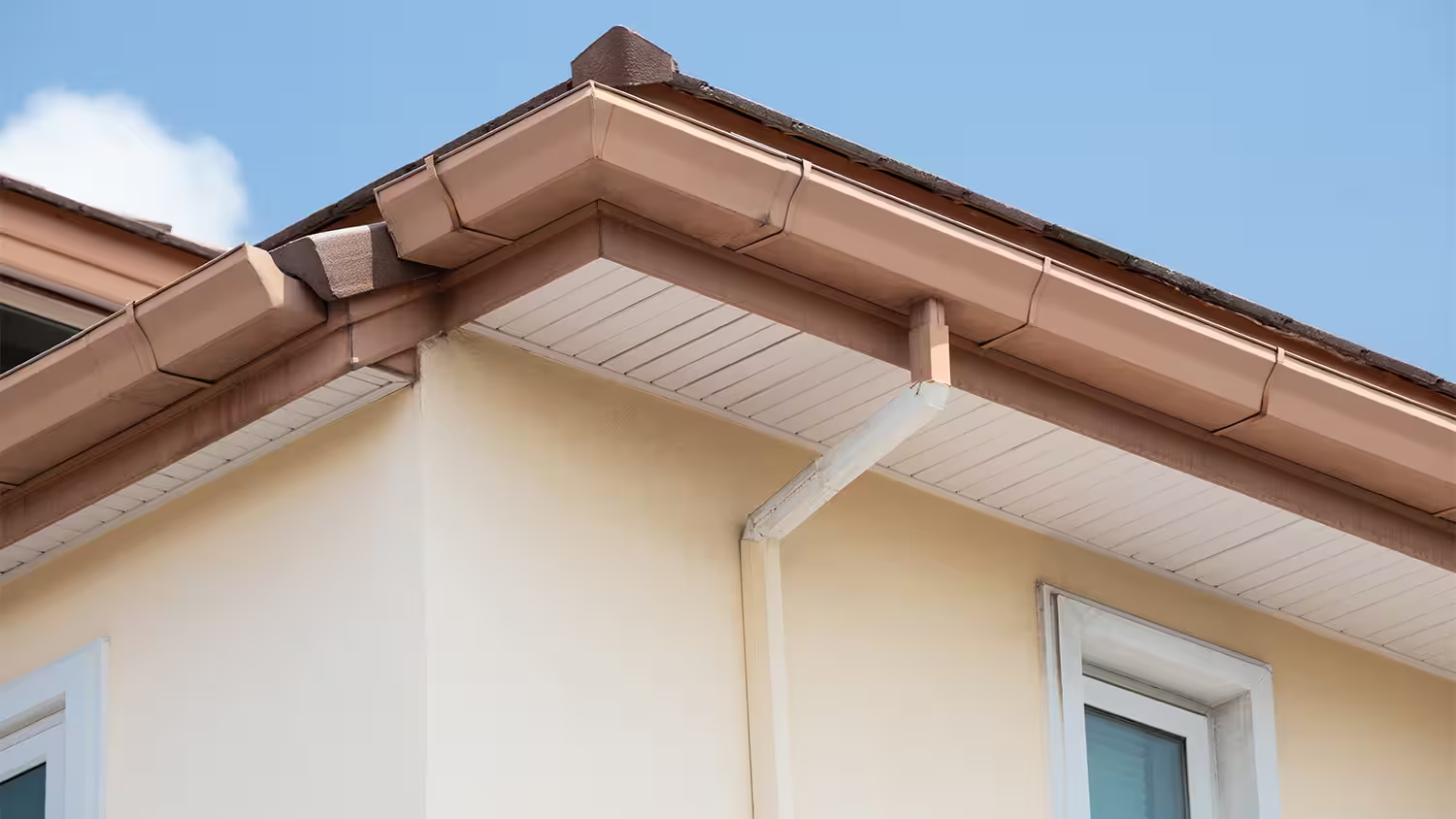The Role of Gutters and Downspouts

Gutters and downspouts are key components to an efficient roof drainage system, helping keep water away from pooling at your home’s foundation and preventing soil erosion or basement flooding.
At times overlooked exterior features require regular inspection and maintenance for optimal function. Read on to gain more knowledge of what role gutters and downspouts play.
Gutters Direct Rainwater
Gutters capture and redirect rainwater away from roof edges, keeping moisture from washing away shingles or sagging fascia boards and into downspouts for drainage into the ground at an appropriate path that avoids soil erosion and foundation damage.
Gutter downspouts may contain features designed to disperse water more evenly, such as curved ends or splash blocks that direct its path away from foundations rather than returning to drains and pipes. Some gutter downspouts even feature decorative heads such as low-height gargoyles.
Without downspouts, rainwater would simply accumulate in gutters until they overflowed, leading to excessive moisture collecting around a home and leading to mold and mildew growth on fascia boards, basement flooding issues and foundation issues if left unchecked. Downspout extensions provide another level of control over water flow for areas that don’t absorb it as effectively.
Downspouts Disperse Water
Gutters collect roof runoff water, while downspouts direct it away from a property’s foundation. Without downspouts, this rainwater could pool around it and create serious issues such as water intrusion, mold growth and soil erosion.
Downspouts often come equipped with features to disperse the water they collect, such as splash blocks or ground slopes that direct its discharged. Some downspouts even carry this water directly to a sewer drain, French drain or underground drainage system for disposal.
If the downspouts lack sufficient capacity to disperse water efficiently, they may clog with leaves, twigs, pine needles and ice debris, rendering them inoperable. Regular inspection and cleaning should ensure they continue functioning as intended.
Clogged Gutters and Downspouts Can Damage Your Home’s Foundation
Gutter and downspout systems help prevent costly water damage by collecting and redirecting rainwater away from houses. Without gutters and downspouts, rain would simply runoff the roof into pools near the house causing foundation erosion or other complications.
Downspouts (also referred to as water spouts or drain spouts) are used to divert collected rainwater away from your property and away from its immediate environment. They may be attached directly to gutters, or located at their endpoint.
Clogged gutters can lead to flooding of your basement, damaging items stored there as well as leading to mold or mildew growth. Furthermore, erosion of soil surrounding the foundation could result in shifting of the home itself and shifting foundation structures.
Cleaning gutters and downspouts is no fun task, but it must be completed on an ongoing basis for their safety. Be sure to wear thick work gloves to protect yourself from bees and wasps that nest within blocked gutters, and if possible use a ladder instead of climbing on roof.
Repairing Clogged Gutters and Downspouts
Gutters and downspouts must remain free from debris in order to function effectively. Clogged gutters or downspouts may overflow and cause severe water damage, overflowing to flood your property and create severe flooding issues.
If your downspout becomes blocked, first attempt to clear away as much of the blockage with your hands or garden hose. If this doesn’t help, consider using a downspout auger which acts like a plumbing snake; feed your downspout through your gutter and turn its handle to unclog it.
One effective solution for keeping downspouts clear is purchasing gutter covers from outdoor care stores or hardware shops. Gutter covers allow water to pass while blocking debris from entering downspout holes.







